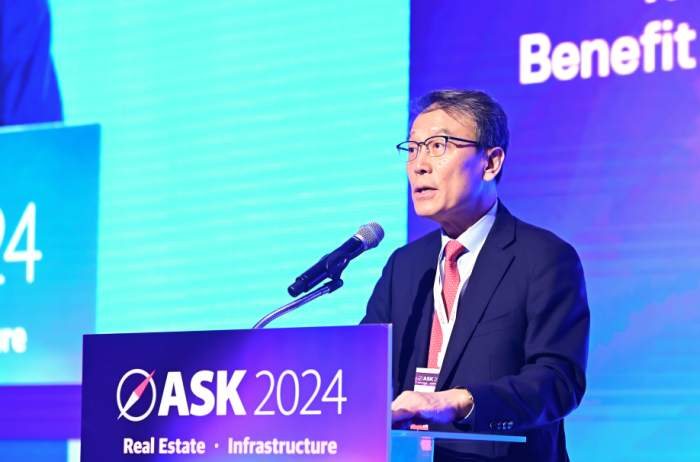Pension funds
POBA favors data centers, senior housing in Europe: CIO
The European real estate market could be more beneficial than the US given the expected rate cut and supply and demand
By May 22, 2024 (Gmt+09:00)
2
Min read
Most Read
LG Chem to sell water filter business to Glenwood PE for $692 million


Kyobo Life poised to buy Japan’s SBI Group-owned savings bank


KT&G eyes overseas M&A after rejecting activist fund's offer


StockX in merger talks with Naver’s online reseller Kream


Mirae Asset to be named Korea Post’s core real estate fund operator



South Korea’s Public Officials Benefit Association (POBA), a retirement fund with assets under management (AUM) of 26 trillion won ($19.1 billion), is keeping a close eye on data centers, senior housing and student accommodations in Europe, Chief Investment Officer Huh Jang said at ASK 2024 on Wednesday.
The sectors play a key role in diversifying portfolios and expanding revenue streams, despite higher risk than other real asset sectors, the CIO of the provincial government employees’ pension fund said during a keynote speech at the alternative investment forum.
The European real estate market could be more beneficial than the US, given the expected rate cut timeline and supply and demand, Huh added.
The fund, which allocates 32% of its AUM to real assets, sees this year’s real estate portfolio rebalance and new capital injection strategies as being important for returns over the next several years.
“Although real estate is a good hedge against inflation, the global supply of properties has dropped significantly amid high interest rates. It could be a great mid-term vintage year in a year or two, when inflation is fully reflected in rents and overlaps the rate easing cycle,” Huh explained.
In commercial real estate, it is time to seek private lending given the high demand for refinancing and attractive risk-adjusted returns, Huh said. POBA is also considering a selective approach to equity investment in properties with strong fundamentals and price dislocation, Huh said.
POBA sees real estate investment trusts (REITs) as very attractive given that the publicly traded securities are more undervalued than private real estate and will outperform in the rate cut cycle, he explained.
In infrastructure, POBA will focus on debt strategies that generate high cash flow and will increase exposure to energy transition and digitalization for mid- to long-term revenue streams.
The pension fund also plans to strengthen value-add assets and secondaries to diversify strategies.
The fund closely watches the rising demand for private capital in infrastructure and global policies to speed up the energy transition. There may be opportunities in energy efficiency-related assets such as multifamily housing, green offices and idle land that could be used for renewable power generation, Huh said.
Write to Jihyun Kim at snowy@hankyung.com
Jennifer Nicholson-Breen edited this article.
More to Read
-

-
 ASK 2022POBA targets upper-middle market in North America for PD investment
ASK 2022POBA targets upper-middle market in North America for PD investmentMay 23, 2022 (Gmt+09:00)
2 Min read -
 Pension fundsPOBA taps former DB Insurance investment head as new CIO
Pension fundsPOBA taps former DB Insurance investment head as new CIOFeb 10, 2022 (Gmt+09:00)
1 Min read -
 Pension fundsPOBA targets PE in tech, bio, healthcare in long term, CIO says
Pension fundsPOBA targets PE in tech, bio, healthcare in long term, CIO saysMay 09, 2022 (Gmt+09:00)
6 Min read
Comment 0
LOG IN


